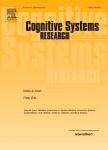版权所有:内蒙古大学图书馆 技术提供:维普资讯• 智图
内蒙古自治区呼和浩特市赛罕区大学西街235号 邮编: 010021

作者机构:Computer Science Department University of Southern California Los Angeles CA 90089-0781 941 West 37th Place Mailcode 0781 United States
出 版 物:《Cognitive Systems Research》 (Cogn. Sys. Res.)
年 卷 期:2001年第2卷第1期
页 面:81-93页
学科分类:0402[教育学-心理学(可授教育学、理学学位)] 0710[理学-生物学] 04[教育学] 1002[医学-临床医学] 1001[医学-基础医学(可授医学、理学学位)] 1010[医学-医学技术(可授医学、理学学位)] 0811[工学-控制科学与工程] 0812[工学-计算机科学与技术(可授工学、理学学位)] 1009[医学-特种医学]
基 金:National Science Foundation, NSF, (CDA-9512448, IRI-9624237) Office of Naval Research, ONR, (N00014-95-1-0759, N0014-99-1-0162) Defense Advanced Research Projects Agency, DARPA, (DAAE07-98-C-L028, DABT63-99-1-0015)
主 题:Behavior-based control Imitation learning Robot learning Social learning
摘 要:This paper describes how the use of behaviors as the underlying control representation provides a useful encoding that both lends robustness to control and allows abstraction for handling scaling in learning, focusing on multi-agent/robot systems. We first define situatedness and embodiment, two key concepts in behavior-based systems (BBS), and then define BBS in detail and contrast it with alternatives, namely reactive, deliberative, and hybrid control. The paper ten focuses on the role and power of behaviors as a representational substrate in learning policies and models, as well as learning from other agents (by demonstration and imitation). We overview a variety of methods we have demonstrated for learning in the multi-robot problem domain. © 2001 Elsevier Science B.V. All rights reserved.